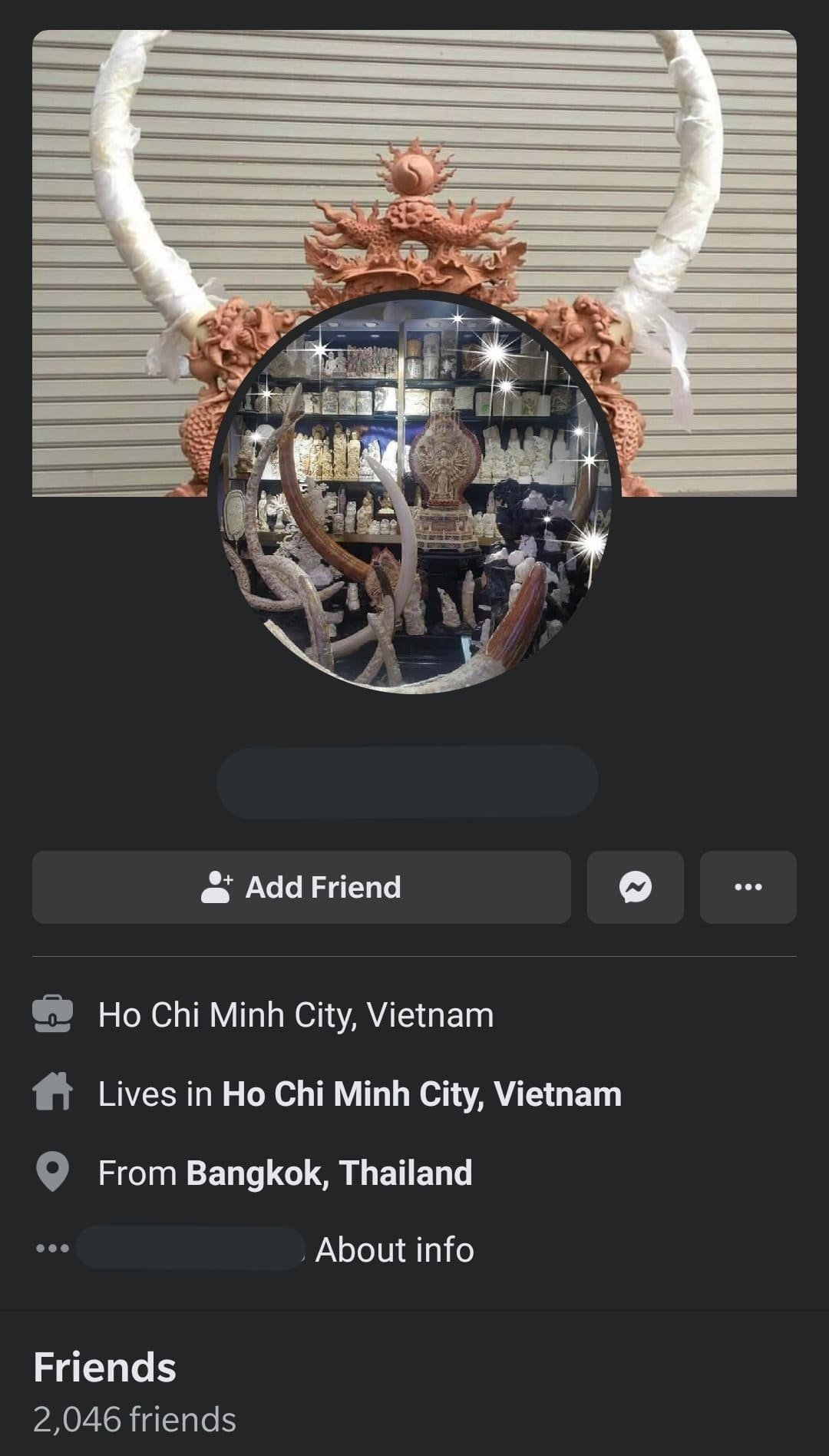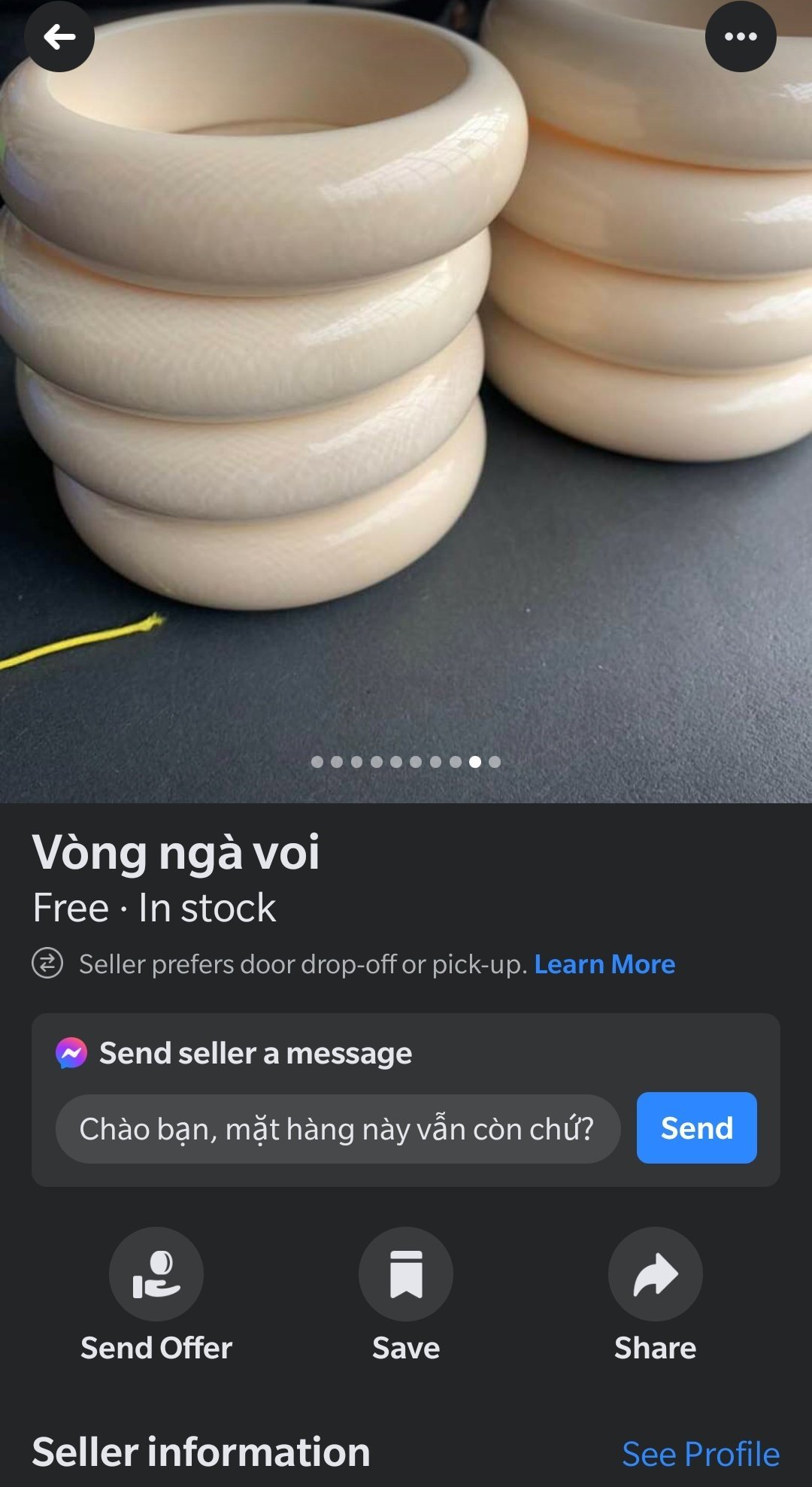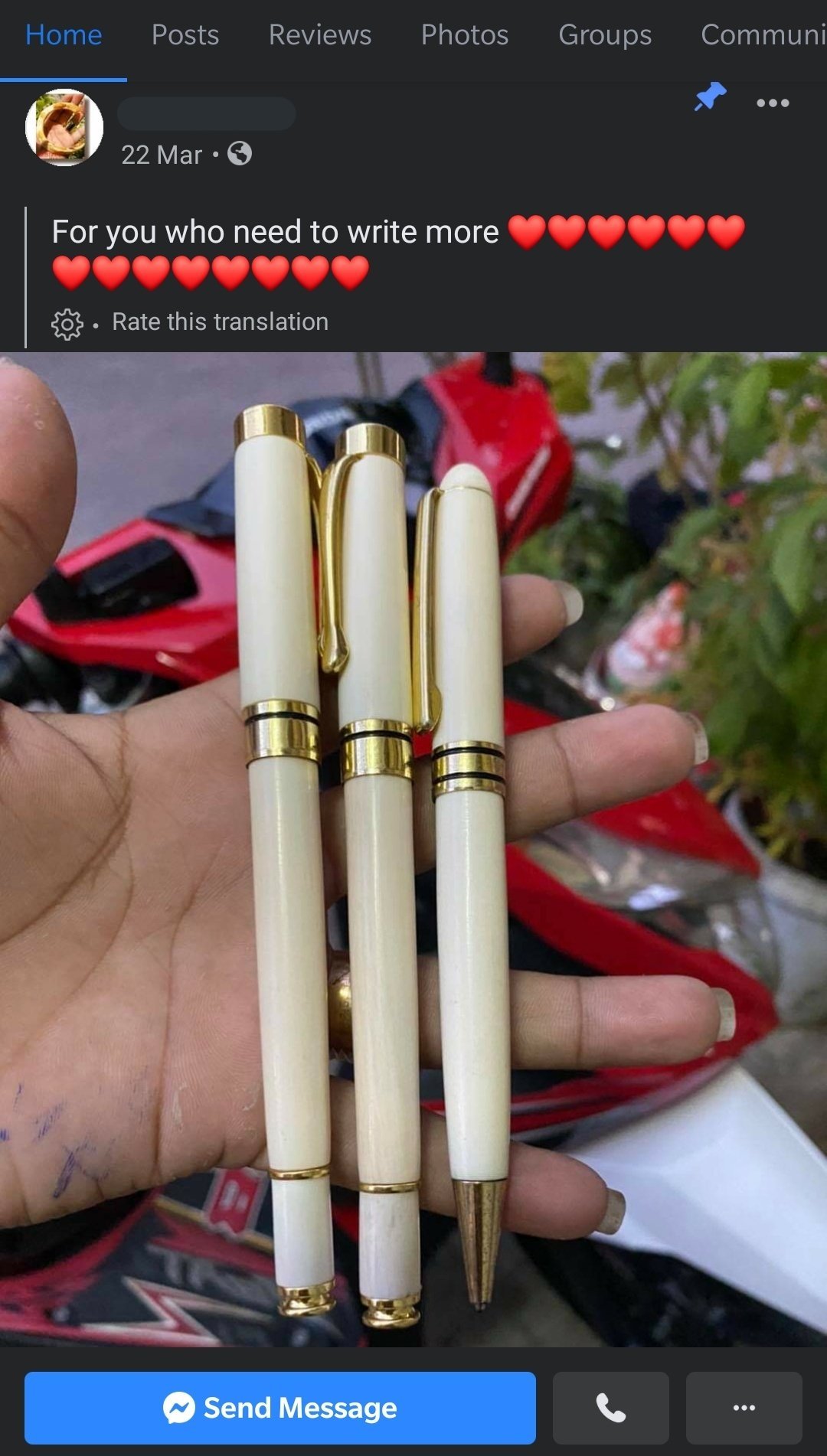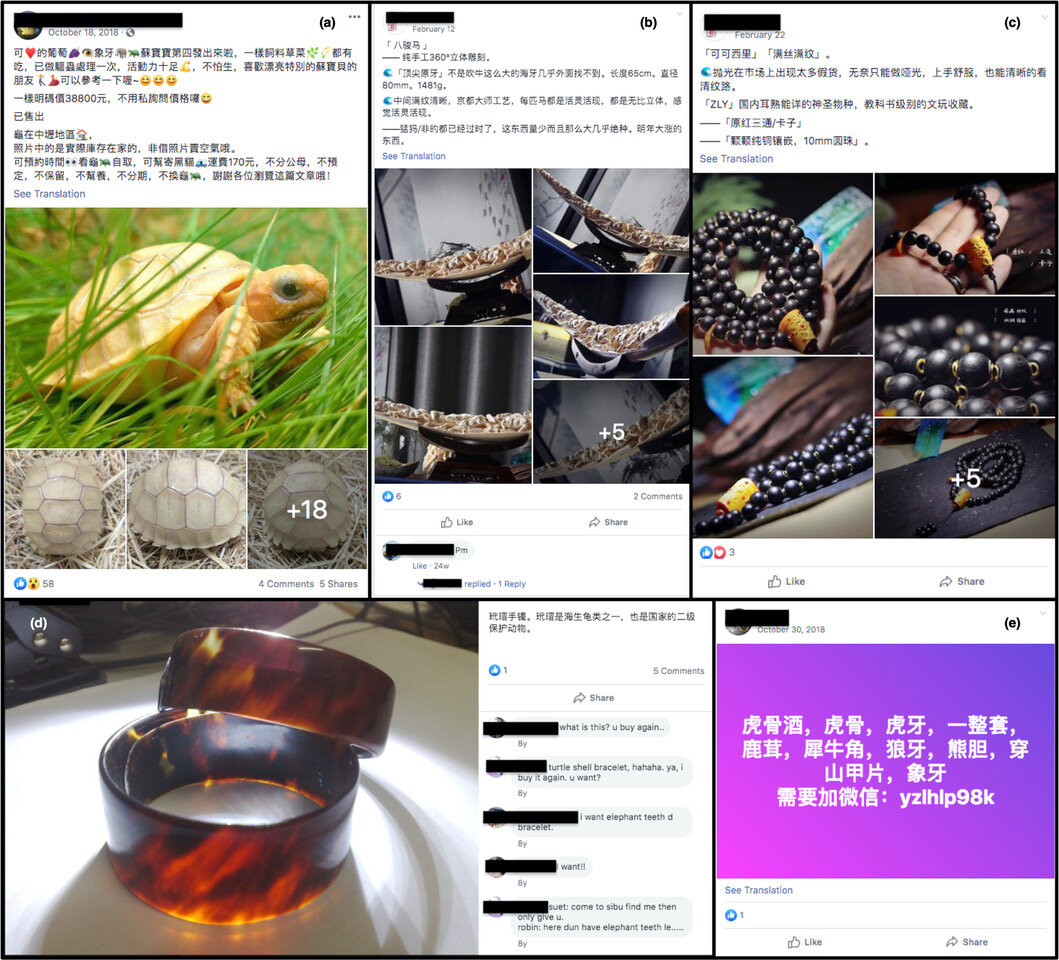Online Wildlife Markets are Wiping Out Animals
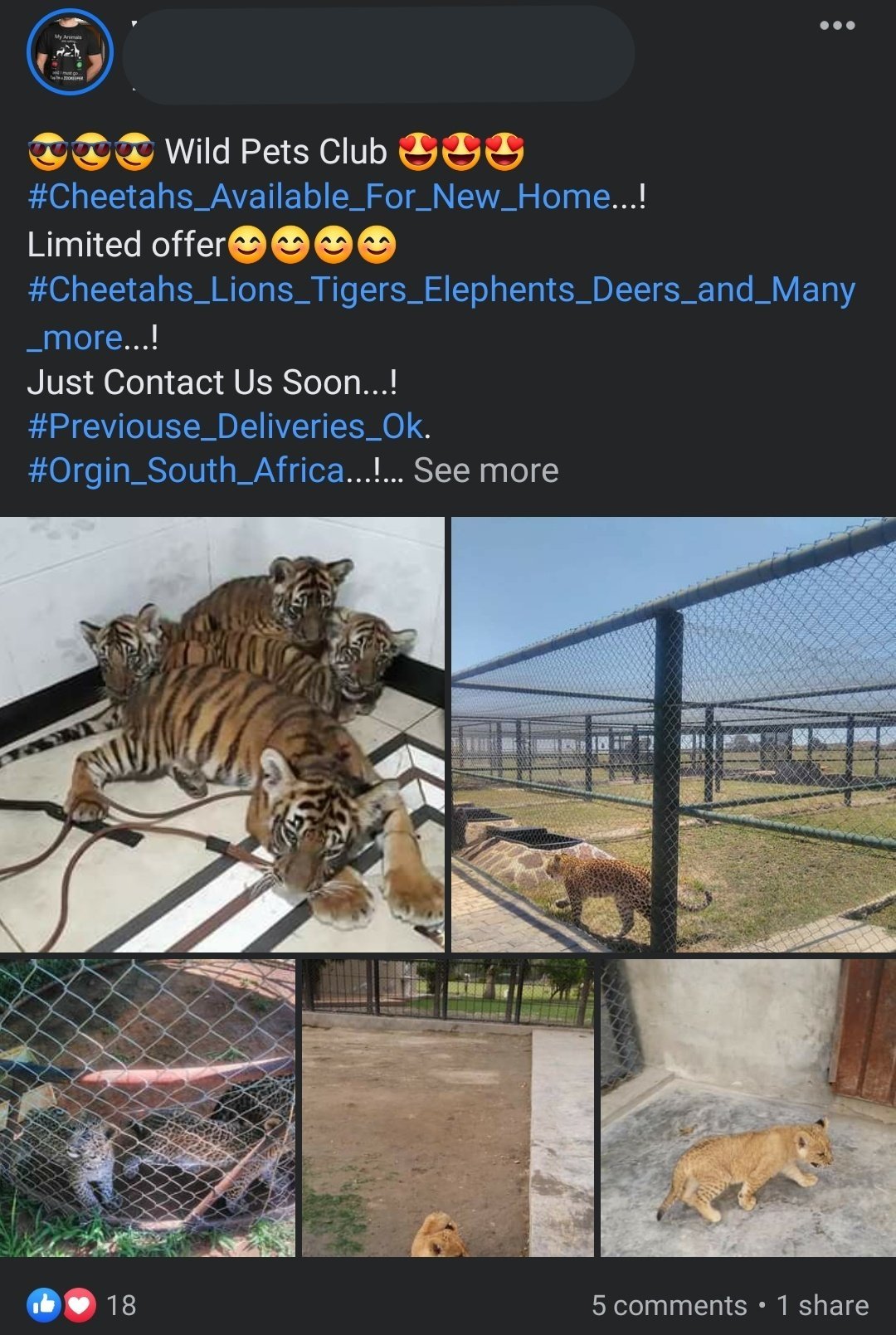
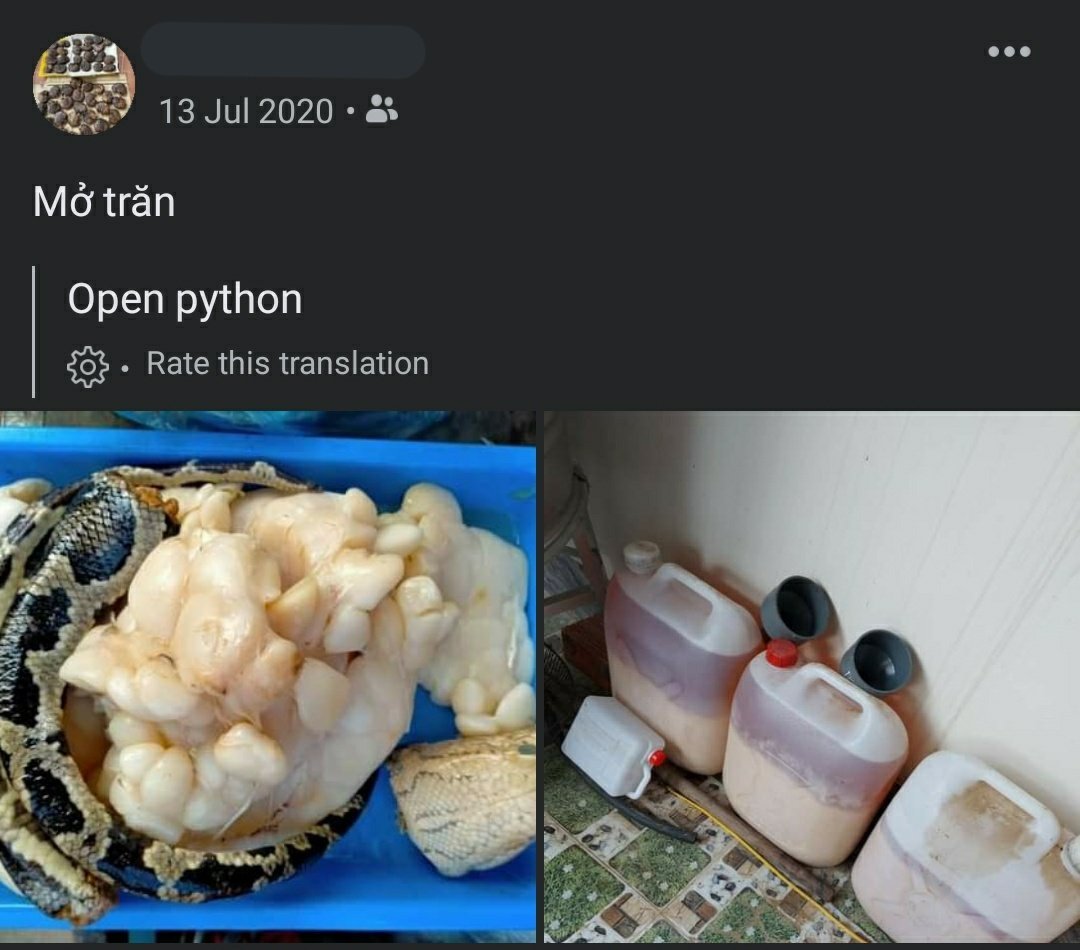
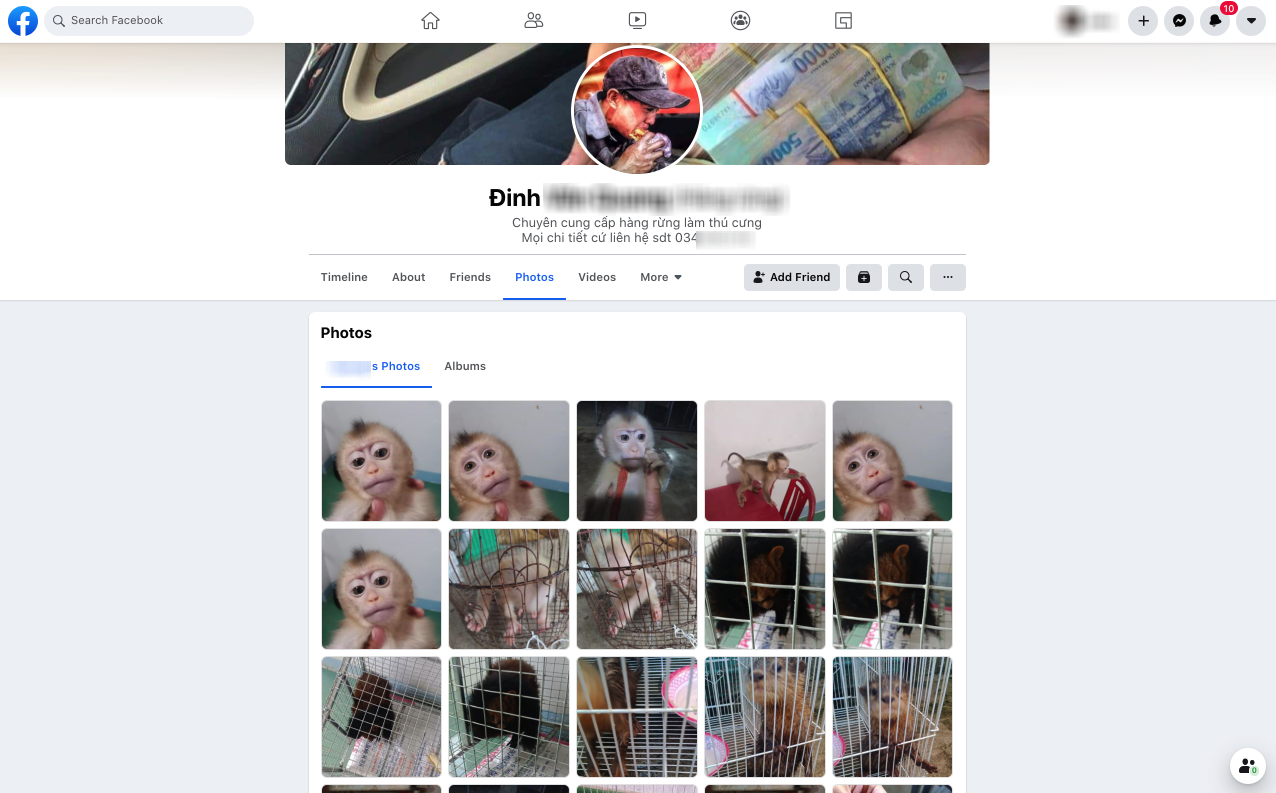
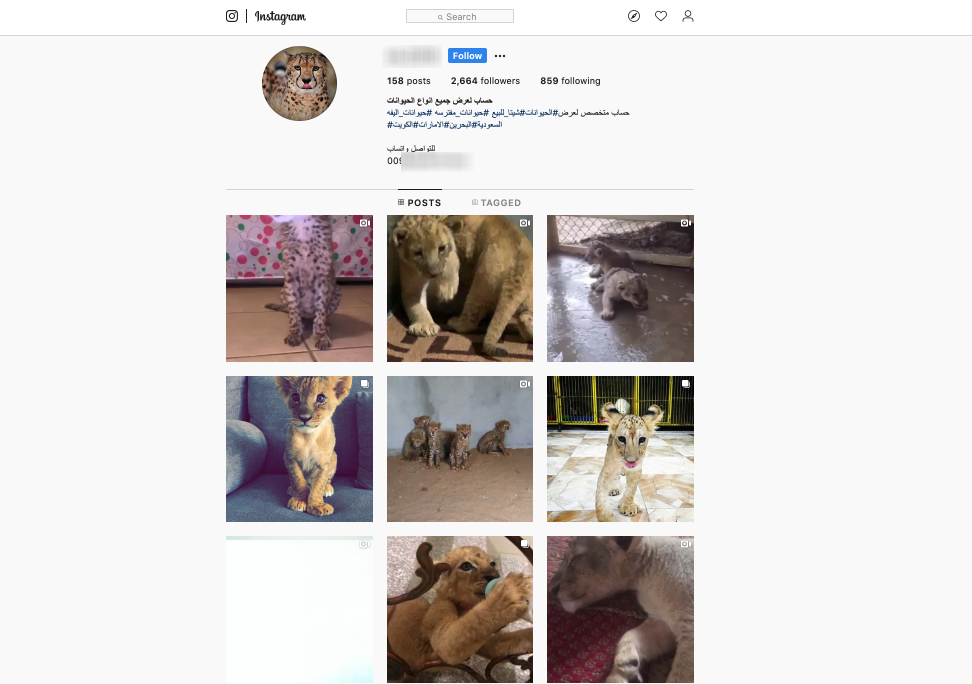
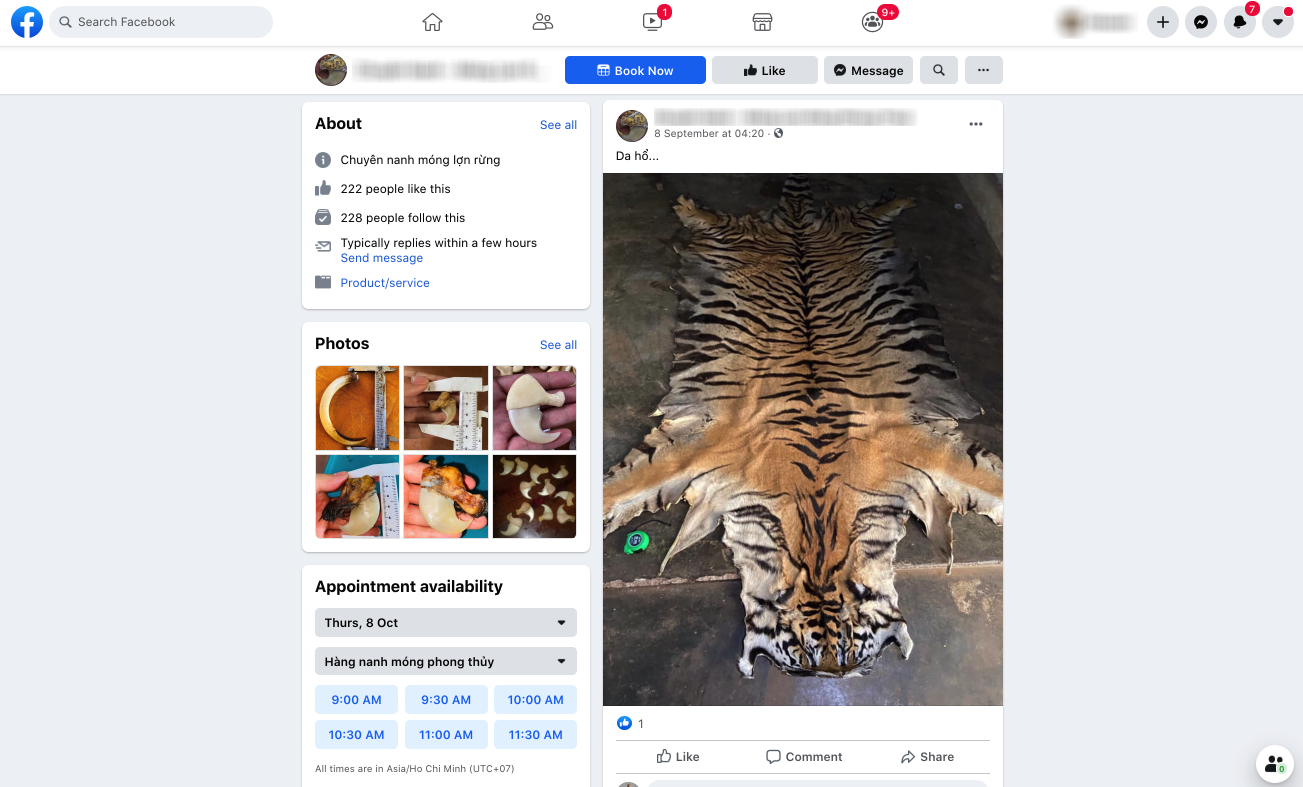
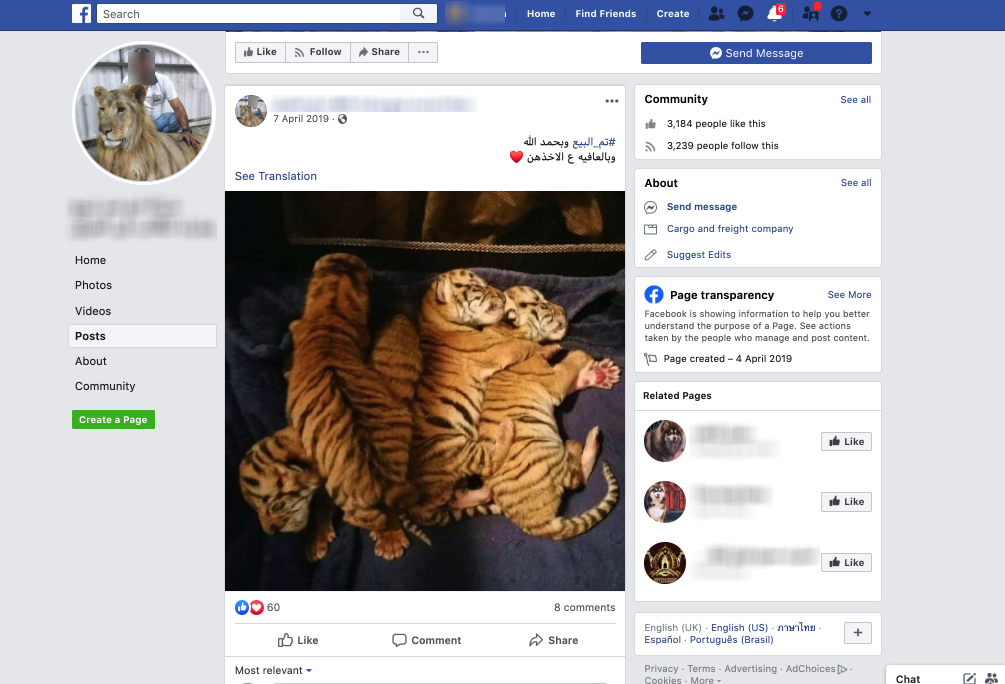

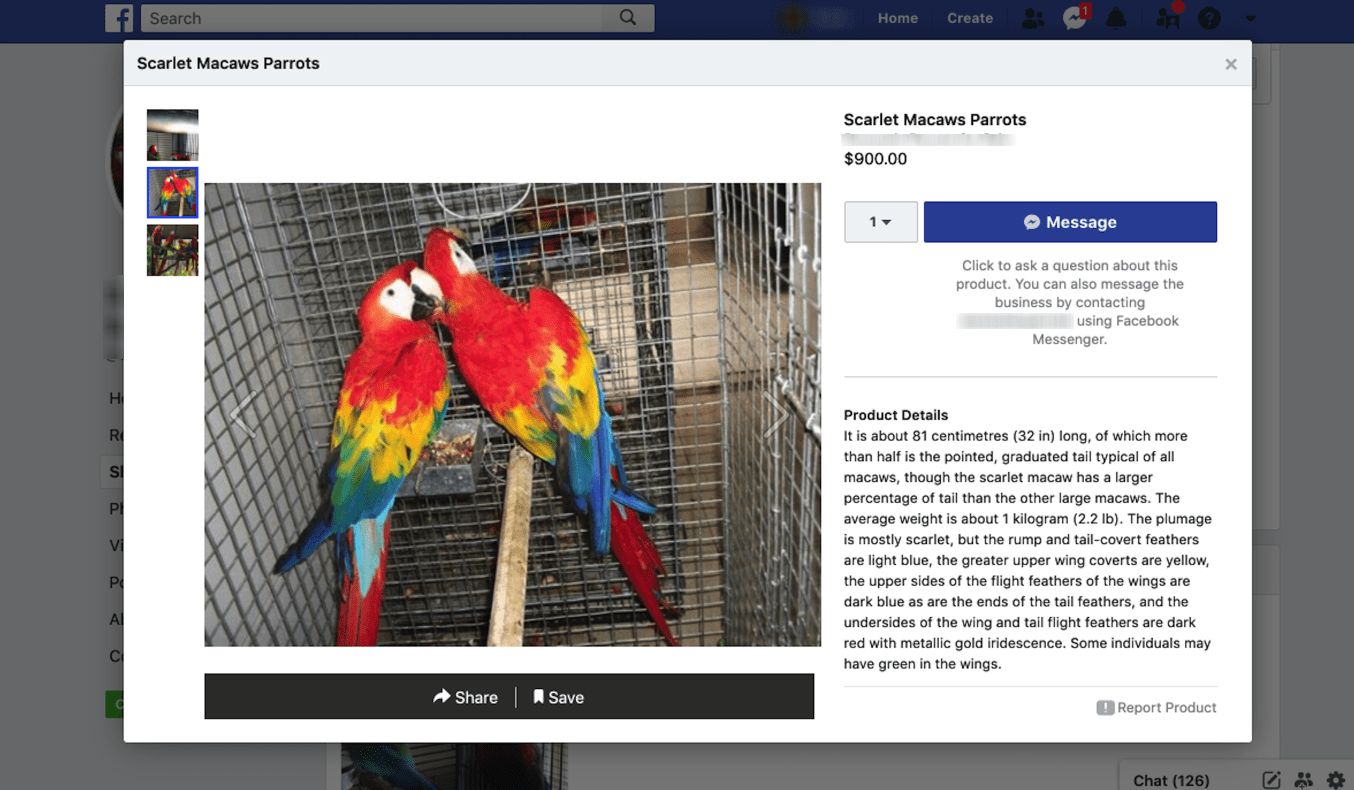

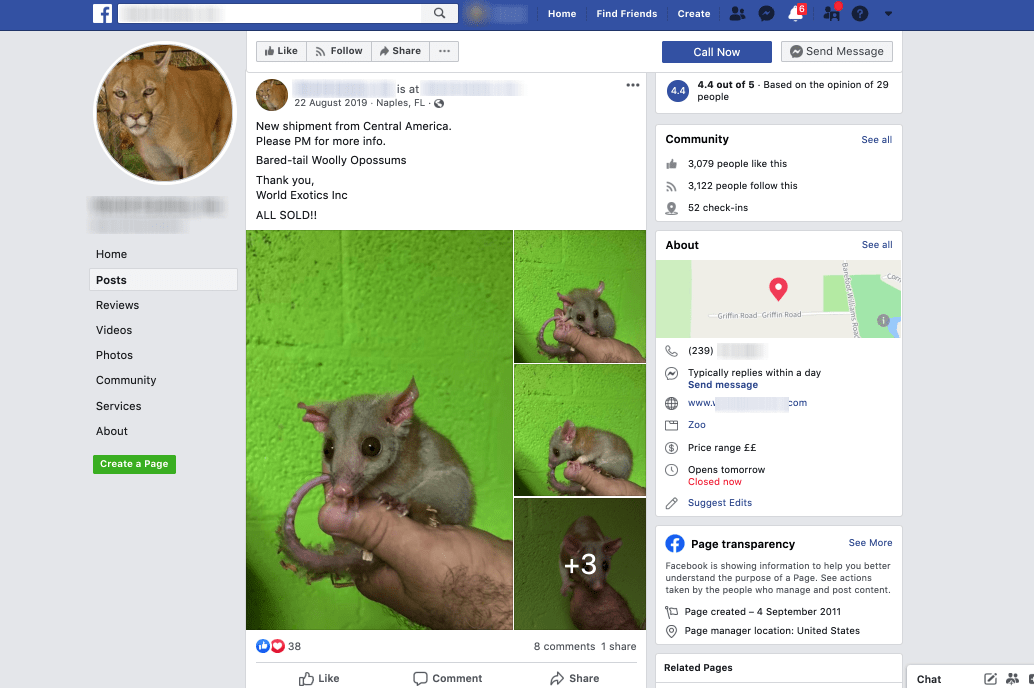
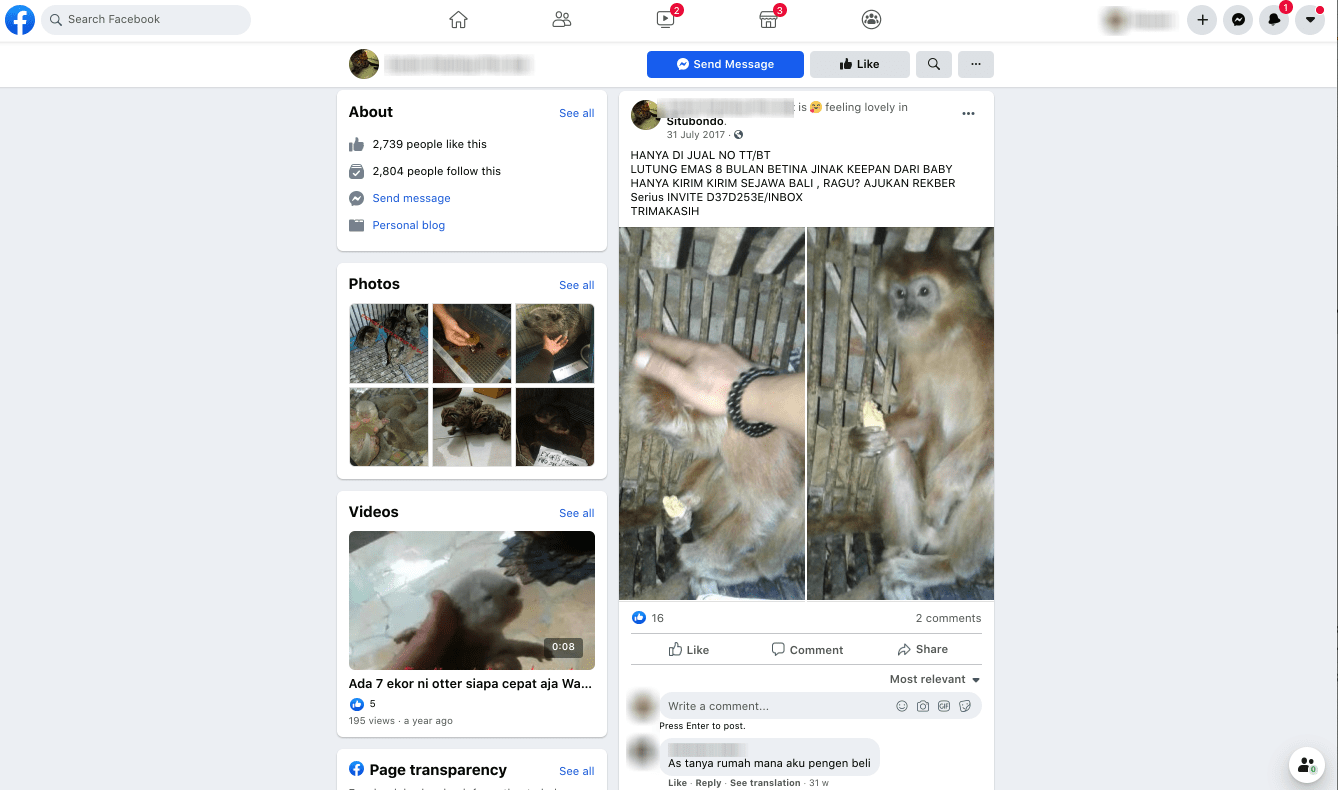

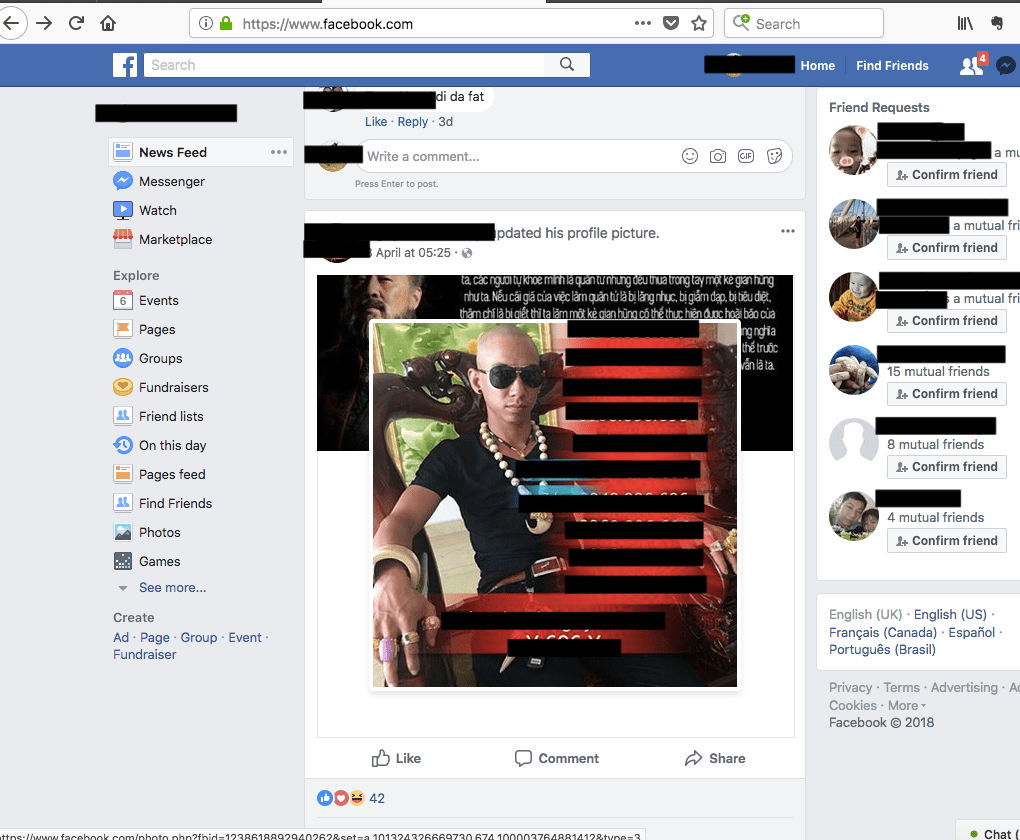
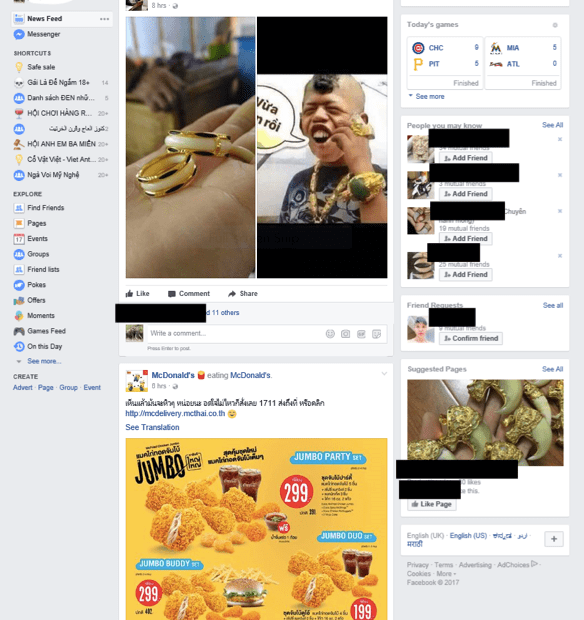


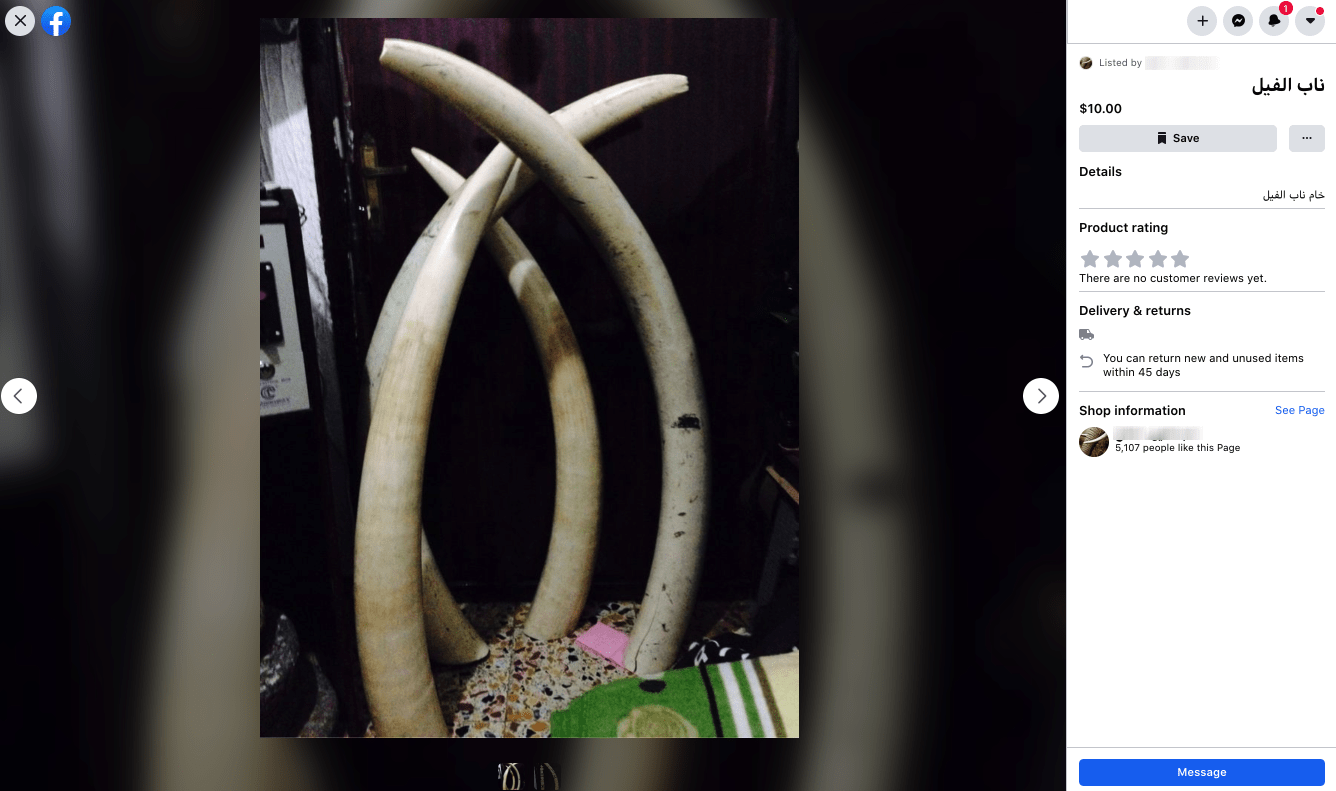
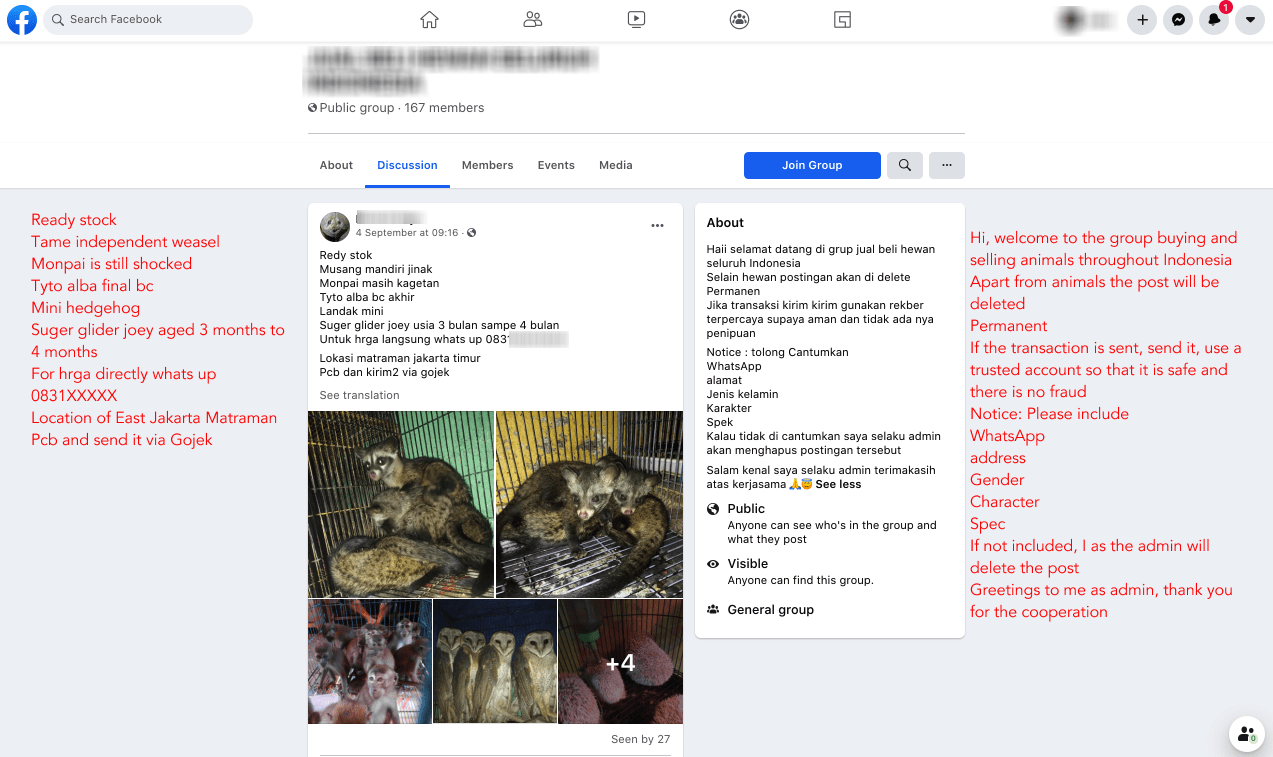
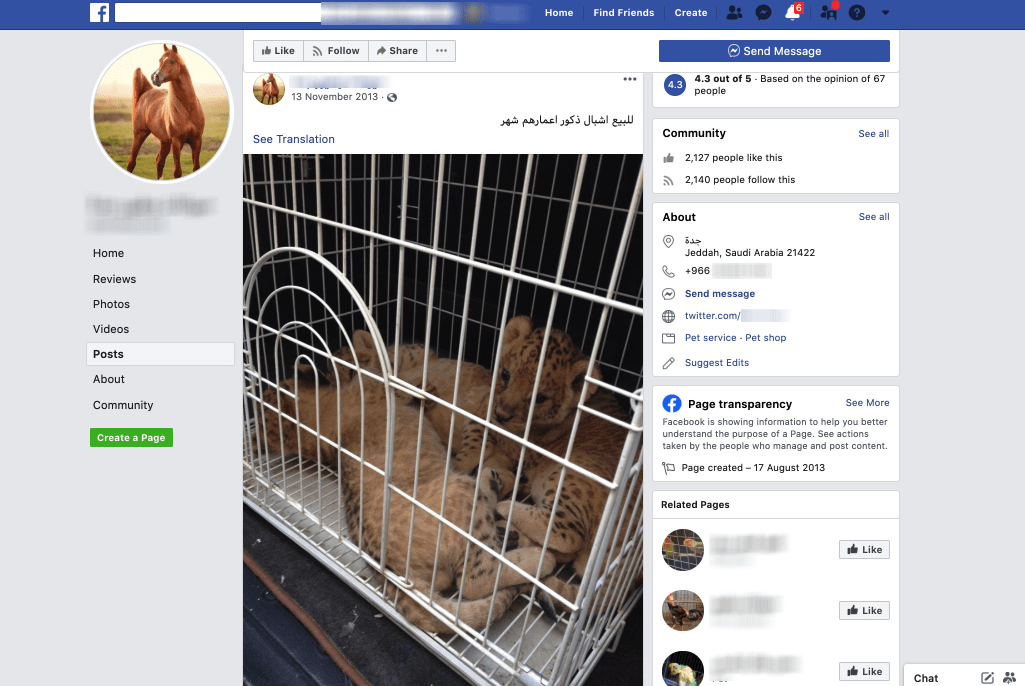

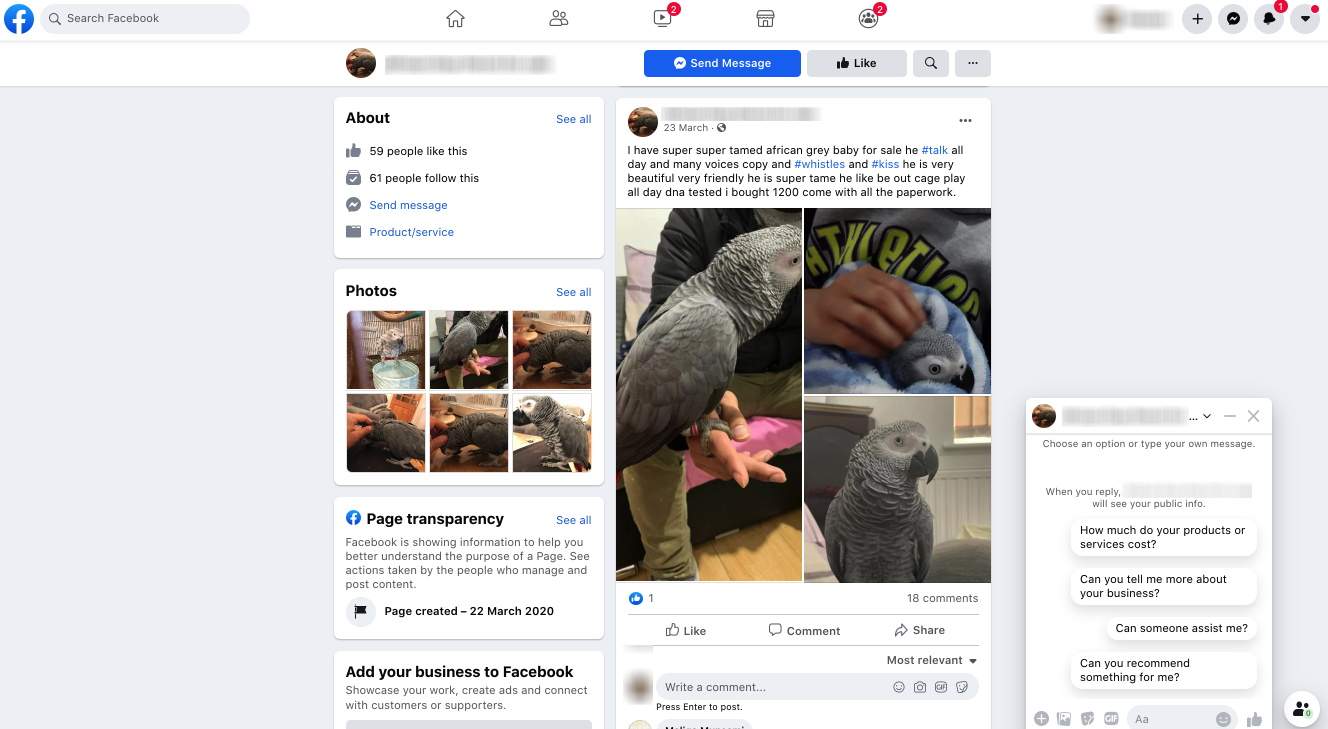
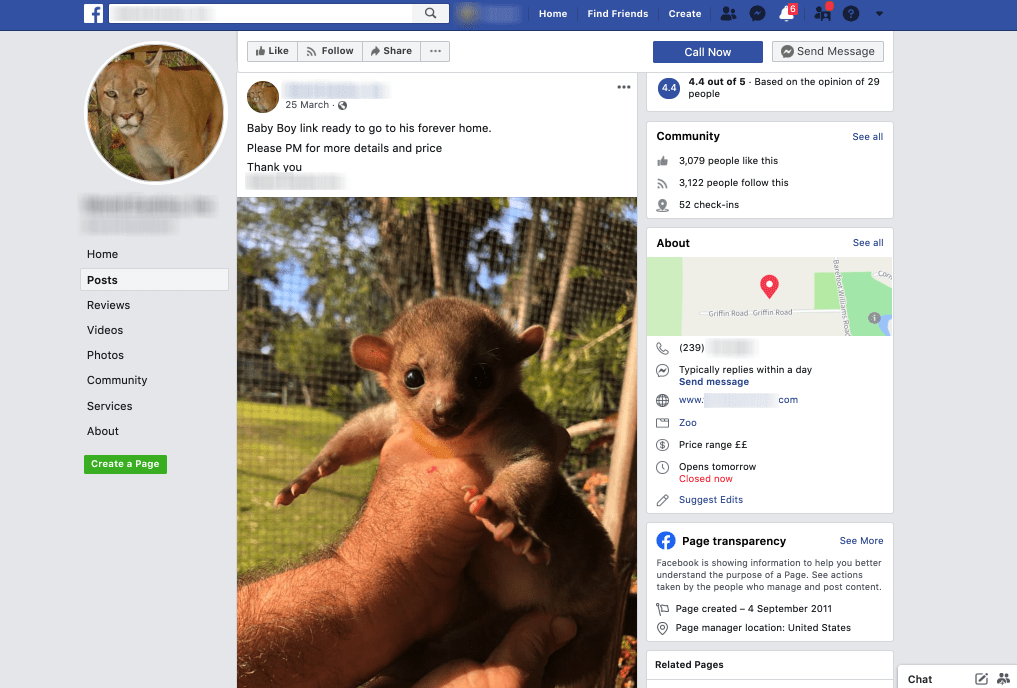

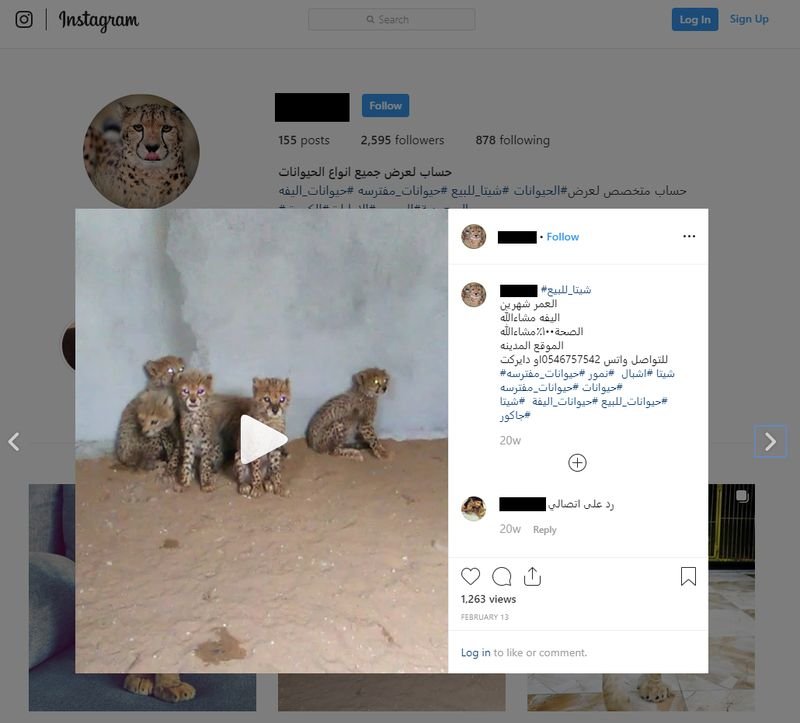
With people in pandemic lockdown around the globe, and the world reeling from a mass extinction crisis, it might surprise you to learn that the world’s biggest markets for illegal wildlife products and exotic pets are located on social media platforms like Facebook, Instagram and China’s WeChat.
In just a few clicks, it’s easy to find pages, groups and postings selling big cats, reptiles, birds, primates, and insects for the exotic pet trade, as well as wildlife products made from endangered species such as elephant ivory, rhino horn, pangolin scales and marine turtle shells. The live trafficked animals are often displayed in pitiable conditions, showing clear signs of distress.
This vast, unregulated trade in live animals and their parts exacerbates risk of another animal-human spillover event, such as the ones that caused Ebola, HIV and the COVID-19 pandemic.
Conducting undercover investigations, and using cutting-edge machine-learning tools, ACCO investigators have documented these cyber-markets, providing evidence to law enforcement and reports to lawmakers and regulators.
A 2020 ACCO study revealed how little the world’s largest social media company is doing to remove wildlife trade content. The study found that 58% of the Facebook pages or groups where wildlife is sold had the term “sale,” “sell” or “buy” in their title, meaning the firm could utilize simple “if” code to identify and block these pages and groups. Why the firm doesn’t implement this simple fix is a critical question for regulators and Facebook users who care about animals.
Dan Stiles, an ACCO expert in ape trafficking, reports that more than half the global trade in apes occurs on social media, where babies can be sold from $20,000 to $40,000. According to Patricia Triorache, another ACCO expert, 75% of online the illegal trade in cheetahs occurs on Instagram. Her work identified more than 400 Instagram accounts that traffic roughly 300 live cheetahs a year.
A 2016 investigation by ACCO experts Wildlife Justice Commission has identified traffickers who sold $53.1 million worth of wildlife products, using Facebook and other platforms to connect with buyers.
While front-line anti-poaching efforts have been vitally important to save endangered species, ACCO seeks to complement what park rangers are doing by targeting the online systems that facilitate the sale of illegal wildlife products. As ACCO Executive Director Gretchen Peters told Wired, arresting individual poachers is like arresting a drug dealer selling dime bags on a street corner. By shutting down wildlife markets on Facebook and WeChat, we can disrupt an entire system. Read the story here.
How Wildlife Trafficking Works On Social Media
Over the past decade, the illicit wildlife trade, like almost all forms of commerce, has shifted online. Traffickers use their social media profiles on Twitter, Instagram or Facebook, or establish a private or open Facebook group to market their goods to potential buyers. Buyers can “like” items, leave comments, or message the sellers directly to negotiate a price. Platforms like Facebook mainly rely on users and activists to report posts violating their rules against such activity, and therefore the vast majority never gets removed. In some cases, tech platforms actually profit off of wildlife trafficking, since they take commissions off payments made through the platform, or profit from advertisements placed on wildlife pages. During an undercover investigation, ACCO member CINTOC gathered evidence of advertisements for major commercial brands placed alongside criminal accounts. These ads collect revenue for Facebook based on reach and engagement. As Facebook makes a pivot to privacy and encrypted communication, wildlife trafficking, like other crimes, will become harder to trace.
In March 2018, Facebook, along with eBay, Google, and Alibaba, joined the Global Coalition to End Wildlife Trafficking Online. Collectively, they promised to reduce wildlife trafficking by 80% on their platforms by 2020. Unsurprisingly, most platforms failed to meet this goal. ACCO research found that not only are new wildlife trafficking accounts and groups popping up every day, Facebook has failed to take down old pages and groups, some of which have operated uninterrupted on the platform for a decade.
CDA 230
Facebook’s monitoring of illicit activity is voluntary under Section 230 of the Communications Decency Act. This law, which was enacted in 1996, states that technology platforms are expected to moderate illegal activity on their platforms at their own discretion in exchange for immunity from liability for any illicit activity that occurs. Originally enacted to allow the tech industry to grow, it now shields tech giants from any real responsibility. It’s time this law gets reformed.
Tell Congress to make the Internet safer for wildlife, SIGN OUR PETITION.


